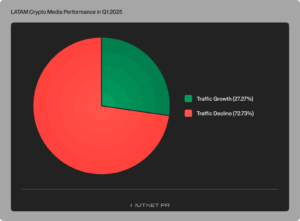
Yield farming is a popular activity in the cryptocurrency space that involves lending or staking cryptocurrencies to earn rewards or fees. It has become increasingly popular in recent years, especially with the rise of decentralized finance (DeFi) protocols. Yield farming has a significant impact on the crypto market, affecting everything from the price of cryptocurrencies to the overall liquidity of the market.
What is Yield Farming?
Before delving into the impact of yield farming on the crypto market, it’s important to understand what it is. Yield farming is a process that allows crypto holders to lend or stake their cryptocurrencies on a DeFi protocol. In exchange for lending their assets, they receive rewards or fees. These rewards can be in the form of the protocol’s native token, other cryptocurrencies, or even fiat currency.
Yield farming is made possible by the use of smart contracts. These contracts are self-executing and automatically execute the terms of an agreement when certain conditions are met. In the case of yield farming, smart contracts are used to automatically distribute rewards to those who lend their cryptocurrencies.
Impact of Yield Farming on the Crypto Market
Increased Liquidity
One of the most significant impacts of yield farming on the crypto market is increased liquidity. By lending their cryptocurrencies, yield farmers are essentially providing liquidity to the market. This increased liquidity can lead to a more efficient market with tighter bid-ask spreads, making it easier for traders to buy and sell cryptocurrencies.
Increased Demand for Cryptocurrencies
Another impact of yield farming on the crypto market is increased demand for cryptocurrencies. Yield farming can be a lucrative way to earn rewards or fees, which can incentivize more people to buy and hold cryptocurrencies. This increased demand can drive up the price of cryptocurrencies, which can benefit long-term holders.
Increased Volatility
While yield farming can increase demand for cryptocurrencies, it can also increase volatility. This is because yield farmers often move their cryptocurrencies around in search of the best yields. This constant movement of cryptocurrencies can lead to fluctuations in the market, which can be exacerbated by large yield farmers.
Creation of New Tokens
Yield farming can also lead to the creation of new tokens. Many DeFi protocols have their own native tokens, which are used to incentivize users to lend or stake their cryptocurrencies. These tokens can be traded on cryptocurrency exchanges, leading to a whole new market of tokens.
Risk of Fraud
Finally, yield farming can increase the risk of fraud in the crypto market. Because DeFi protocols are decentralized, they are not regulated in the same way that traditional financial institutions are. This can make them vulnerable to fraud or hacking, which can lead to significant losses for yield farmers.
Competition Among DeFi Protocols
Yield farming has also increased competition among DeFi protocols. These protocols are constantly looking for ways to attract more liquidity and users to their platform. As a result, they may offer higher yields or lower fees than their competitors. This competition can lead to innovation and improvements in the DeFi space.
Changes in Tokenomics
Yield farming can also lead to changes in the tokenomics of cryptocurrencies. Tokenomics refers to the economics of a token, including its supply, demand, and distribution. Yield farming can affect these factors by increasing demand for certain tokens, which can drive up the price. This, in turn, can lead to changes in the token’s supply and distribution.
Environmental Impact
Another impact of yield farming on the crypto market is its environmental impact. Many DeFi protocols use proof-of-work (PoW) consensus mechanisms, which require significant amounts of energy to validate transactions. This energy consumption has a negative impact on the environment. Some DeFi protocols are moving towards proof-of-stake (PoS) mechanisms, which require less energy and are more environmentally friendly.
Risks of Impermanent Loss
Yield farming can also expose users to the risks of impermanent loss. Impermanent loss occurs when the price of the tokens in a liquidity pool changes relative to each other. This can result in a loss for liquidity providers who may receive fewer tokens when withdrawing their liquidity. Yield farmers who are not familiar with this risk may suffer significant losses.
Regulatory Challenges
Finally, yield farming poses regulatory challenges in the crypto market. As DeFi protocols are decentralized and not regulated, they can be used for illicit activities such as money laundering or financing terrorism. This has led to increased scrutiny and regulation of the DeFi space by regulatory authorities, which can affect the growth and adoption of yield farming.
Impact on the Centralized Finance (CeFi) Market
Yield farming also has an impact on the centralized finance (CeFi) market. CeFi refers to traditional financial institutions that offer financial services such as lending, borrowing, and trading. Yield farming can compete with these services by offering higher yields or lower fees. This competition can lead to innovation in the CeFi space and can benefit consumers by offering them more choices.
Impact on Network Congestion
Yield farming can also impact network congestion in the crypto market. As more people participate in yield farming, it can lead to increased demand for transactions on the blockchain. This increased demand can lead to network congestion and higher transaction fees. This can be a significant challenge for smaller investors who may not be able to afford high transaction fees.
Impact on Governance
Many DeFi protocols have a governance structure that allows users to vote on decisions related to the protocol. Yield farming can impact governance by giving more voting power to users who hold more tokens. This can lead to a concentration of power among large token holders, which can affect the direction and decisions of the protocol.
Impact on Decentralization
Finally, yield farming can impact the decentralization of the crypto market. While DeFi protocols are designed to be decentralized, yield farming can lead to centralization by concentrating liquidity and voting power among large token holders. This can lead to a situation where a few large players control the direction and decisions of the protocol, which goes against the principles of decentralization.
Conclusion
In conclusion, yield farming has a significant impact on the crypto market. It can impact liquidity, demand for cryptocurrencies, competition, governance, and decentralization. As the DeFi space continues to evolve, it will be important for investors to carefully evaluate the risks and rewards of yield farming before participating. Additionally, it will be important for DeFi protocols to address issues such as impermanent loss, network congestion, and centralization to ensure the long-term sustainability and growth of the DeFi space.
I’m a highly experienced and respected author in the field of Cryptocurrencies. I have written numerous articles and books on the subject, and my work is highly regarded by my peers. I have a strong understanding of the technology behind cryptocurrencies, and I am always up-to-date with the latest developments in the space. I am also an active investor in cryptocurrencies, and I have made a significant profit from investing in this new asset class. In addition to my writing and investment activities, I am also an active member of the cryptocurrency community, and I frequently speak at industry events.








